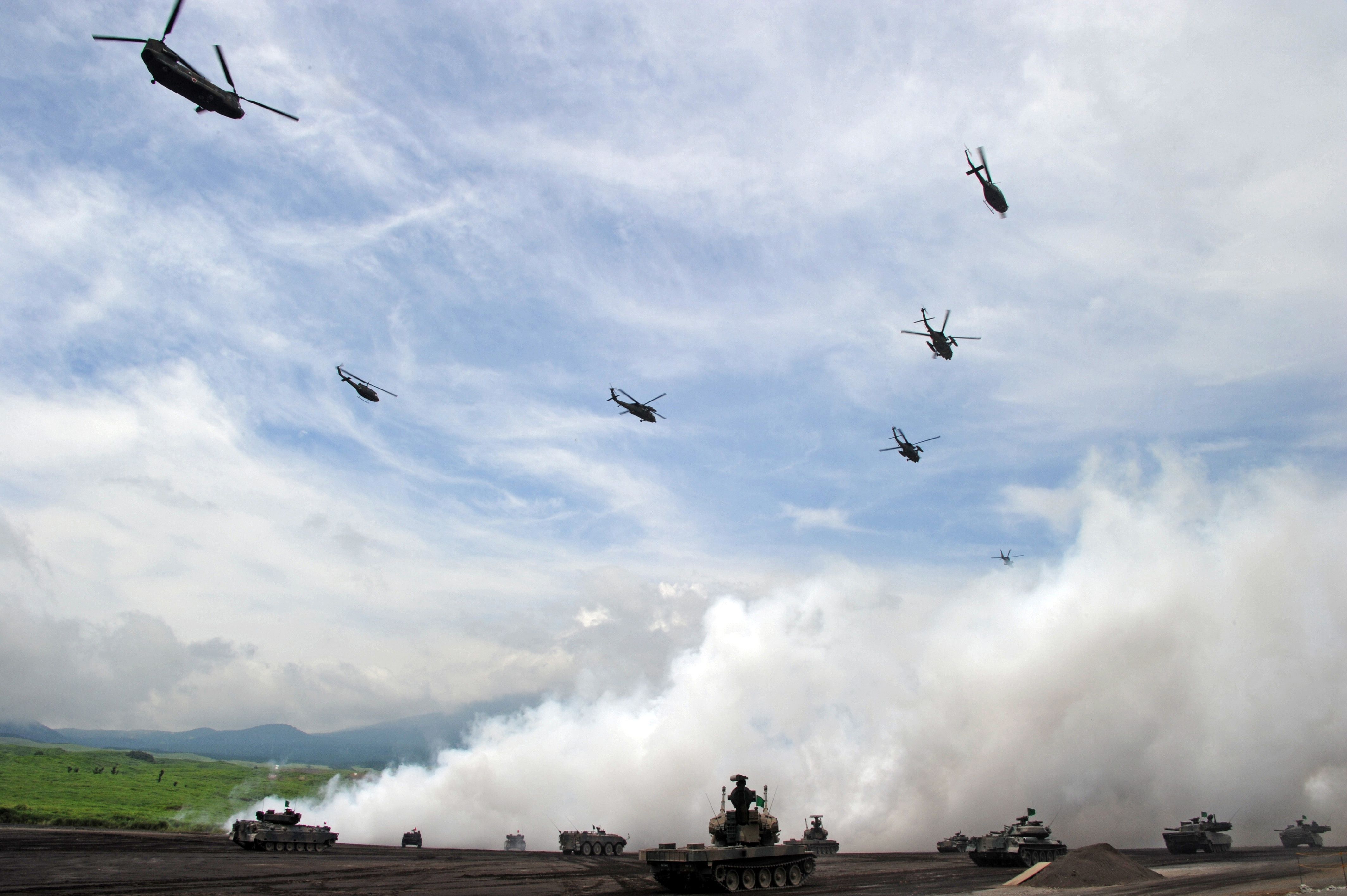Now that "defense of others" (taei, 他衛) is a form of "self-defense" (jiei, 自衛) and, according to Defense Minister Gen Nakatani in a recent Diet appearance, hand grenades (shuryūdan, 手りゅう弾) and missiles (misairu, ミサイル) are not weapons (buki, 武器) but ammunition (dan'yaku, 弾薬), it may be an apt time to review military doublespeak.
Article 9 of Japan's Constitution famously renounces war (sensō, 戦争) and the use of force to resolve international dispute. It also prohibits the maintenance of "land, sea, and air forces, as well as other war potential" (rikukaikūgun sono ta no senryoku, 陸海空軍その他の戦力). The provisions have been interpreted as permitting the maintenance and use of military force for self-defense, but this has led to some interesting linguistic gymnastics.
Both gun (軍, army or military) and sen (戦, war) are elementary kanji that are combined with numerous others to form numerous common military terms. These may be constitutionally problematic, however, at least in official parlance. For example, combine gun with kai (海, sea), kū (空, sky) and riku (陸, land) and you get navy (海軍, kaigun), air force (空軍, kūgun) and army (陸軍, rikugun), all of which are specifically prohibited by the charter.



















With your current subscription plan you can comment on stories. However, before writing your first comment, please create a display name in the Profile section of your subscriber account page.